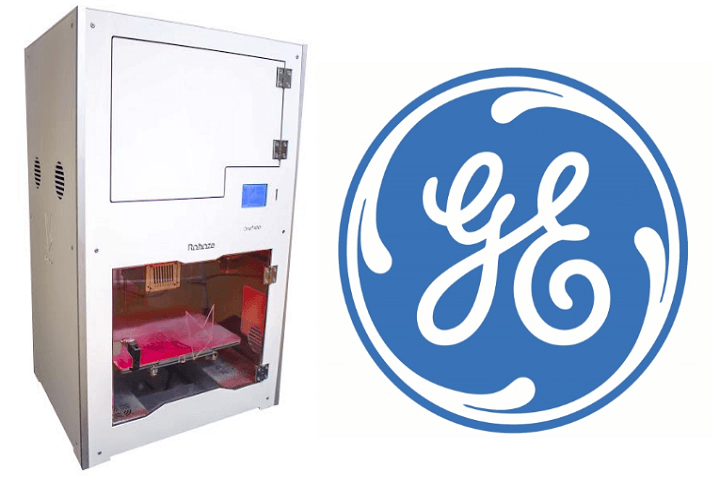
As part of GE vision to explore ways of implementing 3D printing technologies in manufacturing processes, the company decided to acquire Roboze's flagship product – The Roboze One+400 industrial 3D printer, for producing and testing durable 3D parts from 13 different types of high thermoplastic materials for advanced applications.
Milan, ITALY – 9th February 2017 – The multinational giant General Electric has long been one of the largest users and supporters of the 3D printing technologies for concept design, prototyping and manufacturing. Recently, the company decided to strategically to focus on the implementation of 3D printing in producing end-use parts mostly from metals and plastics, with a goal of reducing costs and in making manufacturing more agile. As part of this effort, the company recently established numerous AM plant worldwide.
GE constant research efforts for innovation has always been, from more than a century, a primary and strategic goal to serve the changing needs of high-technological industries. The Global Research Division, based in 7 strategic cities around the globe, has continuously demonstrated its willingness to stand out, break boundaries and innovate, always looking to lead global technological revolutions.
After an extensive search for new and innovative 3D printing technologies, GE Global Research's scientific and technical team, based in Niskayuna (USA), decided to purchase the new Roboze One+400 industrial 3D printer from of the Italian-based company Roboze. Given the versatility of Roboze solutions, capable of printing 13 different types of techno-polymers, including PEEK and PEI, combined with high precision of 50 micron offered by the company's unique Beltless System, Roboze most innovative technology lends itself as a powerful research tool to one of the biggest companies in the world.
“We are happy and excited to have this new 3D printer. At first, we will be evaluating how this solution reflect our internal intent. Having the ability to print high performance polymers, such as PEEK, will permit us to reduce manufacturing costs by increasing the efficiency of building new parts, and also extending the life of existing parts that would otherwise by scrapped.” says Scott Miller, Manager, Material Systems Lab of GE Global Research. In the early stages, the GE team will focus on PEEK aeronautical applications.
Roboze, an innovative developer and manufacturer of advanced FFF 3D printing solutions, aim at offering giant leaders the accessibility to high-thermoplastics materials for producing durable parts with high accuracy and repeatability. This technology enables professional users to manufacture end use metal replacement 3D parts, and parts for real functional testing.
“I'm very proud of what we have accomplished in the past year after tremendous effort in research and development”. Says Alessio Lorusso, Roboze's Founder & CEO. “Successfully delivering our Roboze One+400 to the laboratories of GE Global Research in Niskayuna, points out to one main conclusion – our innovative 3D printing technology will be part of the global industrial revolution, offering ways to substantially reduce manufacturing costs, which is a primary goal of all large industrial corporations. We will work closely with our customers to follow their changing needs, and provide them with new solutions focusing on reinforced metal replacement materials. I'm honored to help and support GE in their journey of leading once again new industrial revolutions”.
Teams from both companies plan to work closely, share feedbacks and ideas on how to further improve the company's technology for the use of advanced applications in manufacturing.
GE's growth in additive manufacturing will also benefit in Italy where, in addition to carrying out research and development in the GE Oil & Gas Additive Center of Excellence in Florence, the Group uses 3D printing applied to industry at the Avio plant Aero di Cameri (NO), where the turbine blades for aeronautical engines are produced, and in the GE Oil & Gas plant in Talamona (SO), where the gas turbine burners are produced through additive technology manufacturing.
